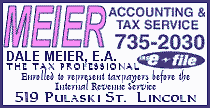| ||||||||||
| ||||||||||
Dodd's video also was about his hair. "The guy with the white hair for the White House," it said. Clinton's video-ad ended with the kicker, "Sometimes the best man for a job is a woman." The candidates gathered at the military college The Citadel in South Carolina, site of one of the earliest primaries
-- Jan. 29. Many questions focused on the Iraq war. Asked if Democrats are playing politics with the war, Rep. Dennis Kucinich of Ohio said yes. "The Democrats have failed the people," he said. Former Alaska Sen. Mike Gravel said U.S. soldiers are dying in vain. No other candidate would go that far. Obama took the opportunity to take a slap at his rivals who voted to give Bush authority to invade Iraq. "The time to ask how we're going to get out of Iraq was before we got in," he said, without naming Clinton, Edwards and others. Gov. Bill Richardson of New Mexico said he's the only candidate pledging to remove troops within six months. "Our troops have become targets," he said. Biden of Delaware said Richardson's goal was unrealistic. Sensing her position was under attack, Clinton bristled as she argued that U.S. troops must be removed from Iraq "safely and orderly and carefully." The Democratic gathering marked a turning point in political communications. CNN, a landmark all-news cable network when founded 27 years ago, is now part of a media establishment coming to terms with upstarts like the 2 1/2-year-old online video community. CNN and YouTube planned to host a similar event for the nine Republican candidates on Sept. 17. The debate aside, YouTube has already left its mark on politics. Republican George Allen lost his Senate seat and a likely spot in the 2008 presidential race after a YouTube video caught him referring to a man of South Asian decent as "macaca"
-- an ethnic slur in some countries. In the presidential campaign, buzz-worthy video clips have included Bill and Hillary Clinton's spoof of "The Sopranos" finale, Edwards' combing his hair to the tune "I Feel Pretty," and a buxom model professing her crush on Obama. Most of the candidates use social networking tools popularized by YouTube and MySpace.com to draw voters to their sites and create a sense of community. Some of the Democratic candidates planned to answers supporters' questions on their sites after the debate.
[Associated Press;
by Nedra Pickler]
Copyright 2007 The Associated Press. All rights reserved. This
material may not be published, broadcast, rewritten or
redistributed.

News | Sports | Business | Rural Review | Teaching & Learning | Home and Family | Tourism | Obituaries
Community |
Perspectives
|
Law & Courts |
Leisure Time
|
Spiritual Life |
Health & Fitness |
Teen Scene
Calendar
|
Letters to the Editor